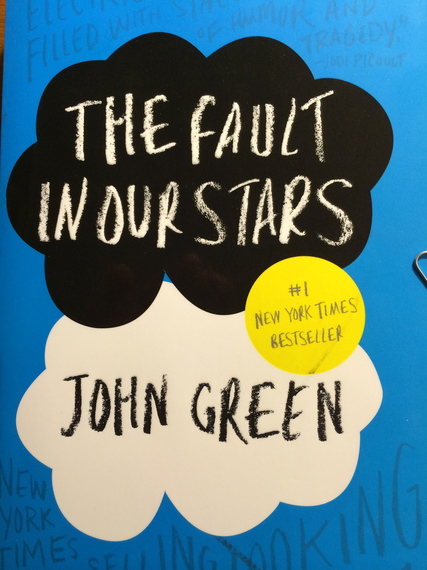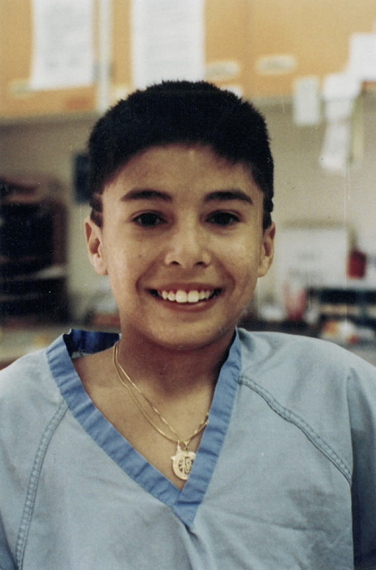Mostly, we ignore death.
John Green, the author of The Fault in Our Stars, and I each served as Episcopal chaplains in children's hospitals, in places where tragedy and our mortality cannot be avoided. Chaplains need to know how to play. They should also understand how to listen to and speak with dying children and their parents. Green's novel (now a movie) confronts the question at the heart of this encounter, one which we all must eventually face: how do we honestly talk about life while remaining fully conscious of our death.
Green's main characters Hazel Grace Lancaster and Augustus Waters meet at a support group for teenagers with cancer in a church basement described by the group facilitator as "literally in the heart of Jesus." They joke about this ("I thought we were in a church basement, but we are literally in the heart of Jesus"). They point out the other awkward adult efforts to pity, comfort or coddle them with "cancer perks."
So often literature about teenagers becomes mired in superficial questions about popularity. This novel hardly addresses that topic. Instead the poetic language and intelligence of the characters about the painful truth of their situation sets it apart. Urgency compels them to get right to the point, to say what they really feel in a way that is too rare in ordinary life.
Hazel and Augustus fall in love. Together they decide what death and life mean. On this path they confront two different ways to talk about mortality.
In Augustus' home his parents have framed needlepoint sayings or "encouragements" hanging on the walls. "Home Is Where the Heart Is," "True Love Is Born from Hard Times," "Family Is Forever," "Without Pain We Couldn't Know Joy." His well-meaning parents refuse to acknowledge the genuinely tragic elements of life. This false optimism seems shallow and hollow. In talking about heaven they merely raise more questions than they answer.
Most of us have experienced this. Well-meaning people in hospitals say, "Everything happens for a reason," or "God has a plan for you," and it just makes matters worse. In our hearts we cannot help but ask what kind of plan and what kind of God dictates that a child die of thyroid cancer before her seventeenth birthday?
Those who have read authors like Sam Harris and Richard Dawkins will recognize the second more cynical attitude exemplified by Green's character Peter Van Houten (the fictional author of the fictional work An Imperial Affliction).
At first, Hazel feels attracted to Van Houten's nihilism. She reads his novel over and over recommending it to Augustus while longing to speak with its author who seems to understand her situation so well. At their first meeting Van Houten summarizes his view saying to Hazel, "You are a side effect of an evolutionary process that cares little for individual lives. You are a failed experiment in mutation."
Ultimately, Hazel describes Van Houten as among the "miserable creatures who scour... the earth in search of something to hurt." She loves great poets like Sylvia Plath, Emily Dickinson, T.S. Eliot, Wallace Stevens and Robert Frost who surprise us with the mystery at the heart of our life. Hazel concludes that our experience of love, gratitude, awe and beauty are the reasons why Van Houten is not simply cruel but also mistaken.
Can there be a middle way between these extremes? Not forgetting our death, can we remain true both to the tragedy and beauty of our existence?
In our society communities which recognize our mortality are rare, but most Episcopal churches I know face death and exemplify this middle way. Communities like this act as containers for hard questions and for being honest about our situation. People can share their doubts in these churches. We do not have to agree about what we believe in order to care for each other.
Most people in their beliefs find themselves somewhere between Augustus' parents and Van Houten. At their best they are humble about their faith and generous to those who hold different views. They value love and kindness over belief. The language of awe and beauty has a hold on them as they try to remain faithful to the extraordinary gift of being alive.
I do not want to spoil the surprise of what happens to Hazel and Augustus, but I can tell you what they come to think. Augustus respected the work of churches. He did not believe in a heaven where you ride unicorns, play harps and live in a mansion made of clouds. But he did "believe in Something with a capital S," that when we die "something becomes of us."
Perhaps Hazel as the narrator has traveled the greatest distance in her understanding of death and life. In the end she agrees with her father that something about the universe wants to be noticed. Furthermore she says, "I felt that I owed a debt to the universe that only my attention could repay..." She says, "Maybe some people need to believe in a proper and omnipotent God to pray, but I don't."
This book brought back many memories of friends I lost at the children's hospital. I remember their faces, their fears and unique beauty. Tonight at dinner I reminisced with an old friend in his forties now dying of bone cancer. We have different beliefs but a great deal of love for each other. He told me, "I am not afraid of dying. I am afraid of not living now."
We did not ignore death tonight.

